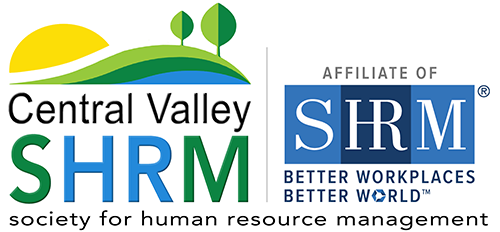2016 Employment Law Update
In 2015, over 930 Bills traversed the space between Governor Brown’s brown desk in the hopes of receiving his John Hancock. Of them, over 800 bills were signed into law. Thankfully, only a fraction related to employment law, or this would be a really long list. The following is a list of pertinent new employment-related laws:
- AB 304 (Labor Code section 245.5, 246, and 247.5; urgency measure effective July 13, 2015.) Paid Sick Leave amendment. Passed to clarify some of the ambiguities raised by the original paid sick leave law, including the following:
- Must work for the same employer for 30 or more days within a year of the commencement of employment.
- Created an alternative accrual method – must accrue on a “Regular basis,” and accrue at least 24 hours within first 120 calendar days of employment.
- “Grandfathered” leave banks existing before January 1, 2015.
- May calculate rate of pay for sick leave using any of three methods.
- If pay out sick leave on termination (not required), the employer is not required to reinstate accrued sick leave.
- If employer has unlimited time off policy, then written notice requirement is satisfied by indicating “unlimited” on wage statements.
- AB 1506 (Labor Code 2699, 2699.3, and 2699.5; urgency measure effective October 2, 2015.) Amends PAGA to provide employers with a limited right (33 days) to cure certain wage statement violations including, the inclusive dates of the pay period and the name and address of the legal entity that is the employer, before the employee may sue under PAGA. In order to cure a violation, an employer must provide a fully compliant, itemized wage statement to each aggrieved employee for each pay period for the three-year period prior to the date of the written notice of violation. An employer can use this cure provision only once for the same violation of the statute during each 12-month period.
- SB 327 (amends Labor Code section 516; urgency measure effective October 5, 2015.) Expressly reaffirms the validity of Section 11(D) of Wage Orders 4 and 5 regarding health care employee meal period waiver provisions. The Legislature’s intent was to negate the appellate court opinion of Gerard v. Orange Coast Memorial Medical Center, 234 Cal. App. 4th 285 (2015), which is currently on appeal to the California Supreme Court.
- SB 358 (Labor Code section 1197.5.) “Fair Pay Act.” Expands existing law by eliminating the requirement that the wage differential be within the “same establishment” and changes the standard from “equal work” to “substantially similar work.” To determine this, a court will consider whether the work is a “composite of skill, effort, and responsibility, and performed under similar working conditions.” Thus, lowering the burden of proof for plaintiff’s claims and increasing the burden of proof for an employer’s defenses. The law contains anti-retaliation provisions and provides a private right of action. It also increases the record-keeping requirements from 2 years to 3 years.
- AB 987 (Government Code section 12940.) Amends FEHA by prohibiting employers from retaliating or discriminating against an employee for requesting reasonable accommodations of his or her disability or religious beliefs, regardless of whether the accommodations were granted. Bill was passed in response to the decision in Rope v. Auto-Chlor Sys. of Washington, Inc., 220 Cal. App. 4th 635 (2013), that held that an accommodation request is not a protected activity.
- AB 1509 (Labor Code 98.6, 1102.5, 2810.3, and 6310.) Extends retaliation protections to an employee who is a family member of a person who engaged in, or is perceived to have engaged in, legally protected conduct.
- SB 600 (amends Civil Code section 51.) Expands the protections of the Unruh Civil Rights Act to all persons, not just employees, by including citizenship, primary language, and immigration status as additional protected categories to the already included list of sex, race, color, religion, ancestry, national origin, disability, medical condition, genetic information, marital statutes, and sexual orientation.
- AB 622 (adds Labor Code section 2814.) Expands the definition of “unlawful employment practice” to include using the E-Verify system at a time or in a manner not required by federal law or not authorized by a federal agency memorandum of understanding to check the employment authorization of an existing employee or an applicant who has not received an offer of employment. Authorizes civil penalties up to $10,000 per violation, and each unlawful use of E-Verify constitutes a separate violation.
- SB 579 (Part 1) (amends Labor Code section 230.8.) Family School Partnership Act or School Activity Leave. Broadens an employee’s right to take job-protected time off without the fear of discrimination or discharge to: (1) find, enroll, or re-enroll a child in school or with a licensed child care provider, and (2) address the need for a child care provider or a school emergency. Extends protected leave to stepparent, foster parent, or any individual standing in loco parentis to a child.
- SB 579 (Part 2) (amends Labor Code 233.) Coordinates and aligns California “Kin Care” law with the Healthy Workplaces, Healthy Families Act of 2014. Permits an employee to use sick leave for the purposes specified in the new sick leave law.
- AB 1513 (Labor Code 226.2.) Clarifies that employees paid on a piece-rate basis must be compensated separately for rest and recovery periods and nonproductive time in addition to their piece rate compensation and provides the corresponding equation. Also provides an affirmative defense and safe harbor for employers who, by December 15, 2016, fully compensate specified employees for all under-compensated or uncompensated rest periods, recovery periods, or unproductive time between July 1, 2012 and December 31, 2015. In addition, it imposes new wage statement obligations, under section 226(a), for employees paid piece-rate to include the total hours of compensable rest and recovery periods and other nonproductive time and the rate of compensation and gross wages paid for both of those periods.
- SB 588 (adds Code of Civil Procedure sections 690.020-690.050; amends Labor Code section 98 and adds Labor Code sections 96.8, 238, 238.1, 238.2, 238.3, 238.4, 238.5, and 558.1.) Assists employees in collecting unpaid wages by authorizing the Labor Commissioner to file a lien or levy on any credits, money or property belonging to the employer where there is a judgment against the employer. If the final judgment remains unpaid for 30 days (no pending appeal), then a bond of up to $150,000 may be required, otherwise the employer must cease business operations in California.
- AB 1245 (amends Unemployment Insurance Code sections 1088, 1110, 1112, 1114, 13002, and 13021; adds Unemployment Insurance Code section 1112.1.) Beginning on January 1, 2017, employers with 10 or more employees are required to file the report of contributions, quarterly return, and report of wages electronically. All employers will be required to electronically file starting on January 1, 2018. Once required, a $50 penalty may be imposed on employers who fail to file the reports or remit payments electronically without good cause.
- SB 623 (adds Labor Code section 3733.) Extends Workers’ Compensation benefits from the Uninsured Employers Fund or the Subsequent Injuries Benefits Trust Fund to workers regardless of his or her citizenship or immigration status.
- AB 970 (Labor Code sections 558, 1197, 1197.1, 2802.) Authorizes the Labor Commissioner to investigate and enforce violations of local laws regarding overtime or minimum wage provisions, including a person acting on behalf of an employer for violations of existing law related to reimbursements for expenses.
- SB 501 (Code of Civil Procedure section 706.050; effective July 1, 2016.) Decreases the prohibited amount of an employee’s weekly earnings subject to wage garnishment to the lesser of (1) 25% of the employee’s weekly earnings, or (2) 50% of the amount by which the employee’s earnings for the week exceed 40 times the minimum wage.
James C. Anderson, Esq., Triebsch & Frampton, APC
Disclaimer: This is only a partial list of the new labor laws passed in 2015 which become effective in 2016 or before. The information provided in this presentation is just a summary for general information purposes only and is not intended as legal advice. Please review the actual laws, regulations, and cases to obtain all the latest updates, details, and implications and to reach your own conclusions as to what the law means. Also seek legal and accounting advice as needed.


